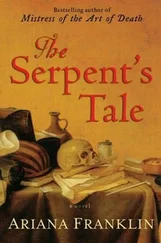“Go,” Adelia told him. “There’s nothing you can do here, in any case. I have enough men.”
He looked, frowning, toward the O’Donnell, who had already got fires going. “That’s what worries me.”
At the back of the shed, shivering male patients were washed down by Mansur and Sister Ermengarde-nuns being accepted as sexless-while in front of it a similar service was performed for the equally shivering women by Adelia and Sister Aelith, then the patients were put to regain warmth by the fires.
“You keep away Boggart.” Adelia wasn’t having her maid and the baby subject to possible contagion.
Inside, the O’Donnell, having sent Deniz to unpack their mule, had slung up a ship’s sail from the cowshed’s rafters to act as a partition and was collecting the timbers that had fallen from the ruined end in order to replace them.
Catching Adelia’s look, he swept off his cap. “Lady I’m a sailor and an Irishman, I can do anything.”
“Tormentil,” Adelia said, turning to Sister Ermengarde. “We’re going to need tormentil and lots of it.”
Armed with trowels and baskets, the two of them, accompanied by Boggart and Ward, began digging like badgers in a nearby meadow for the rhizomes of a yellow-petaled herb which, when shredded, powdered, and mixed with water, would provide the only astringent likely to act against dysentery.
“It is what I myself would have recommended,” Sister Ermengarde said. “And you have some opium for the worst cases? Splendid, splendid.”
Opium. For a moment, Adelia stared at this Christian and then shook her warmly by the hand.
THE FERRYMAN’S DESCRIPTION of Figères as a town had been an exaggeration. Or perhaps the man hadn’t traveled much. It had a tiny priory, a granary and a water mill, some crumbling, corkscrew streets, and an equally crumbling, empty château above the river, and these, since they lay on the southernmost tip of Aquitaine and therefore constituted part of the lands of the King of England, had now been commandeered in his name. The Bishop of Saint Albans and Captain Bolt were in agreement that they would not take Princess Joanna farther until they could make contact with Duke Richard and be apprised of his situation. Their party, due to the absence of the sick, now numbered less than ninety people, too few to venture into disputed territory.
With this in mind, messengers were sent north, to Périgueux, to Poitiers, to civilization generally
All that could be done now was wait. The princess and her retinue were installed, though uncomfortably, in the château with the treasure chests, while Captain Bolt’s men, in tents, made a ring of canvas and steel around them.
The Bishop of Winchester and his chaplains and servants had to snuggle down in a priory whose prior and one monk eked out a living from the soil. Poor Prior James looked on as the royal sumpters examined its granary and barns, filled with the summer’s corn and hay and pronounced them able to feed the procession’s horseflesh for at least a fortnight.
For the first time in weeks, the work of administering to the princess and her train could be pursued in one place, so that Joanna and her nobles might pleasure themselves at leisure. She and her ladies cast their hawks upward at the myriad migrating geese flying overhead, the men went hunting or fishing in the Lot’s rich currents.
With all this to-ing and fro-ing it was possible for an individual to go missing for a day or more without comment…
SCARRY? HE ALSO has sent a message, a secret message carried by a well-bribed servant. A wonderful calm has descended on him as he sees the map of events that his Master has unrolled at his feet.
“Cathars,” he says. “O Great Being, thou hast provided Cathars for our purpose. They have been foretold, for who but You would have connived to put them in my way - and hers? It was Your hand that guided mine when I took her cross.”
For Scarry, though he has not traveled this remote area, knows its flavor. He knows that the Cathar heresy has begun creeping through it like tendrils of flame ready to burn it up and that the Church is afraid of its scorching.
He also knows, for they once met at a convocation at Canterbury, a Vatican-trained prelate who now, if Scarry’s memory is correct, serves the Bishopric ofAveyron, a diocese less than fifty miles away.
Scarry is not acquainted with the Bishop of Aveyron but he knows that man’s flavor, too, and it tastes much to Scarry’s liking. He is sure-for has it not been prearranged? - that his message to Father Gerhardt and his bishop will be received and acted upon with the enthusiasm belonging to all frightened, cruel, and self-serving men.
As for Excalibur, that lesser matter, it is as good as in Duke Richard’s hand already.
UP THE HILL, in the kitchen of the nun’s convent-little more than a cottage of milky gold stone surrounded by a large vegetable garden-young Sister Aelith and Boggart pounded rhizomes until their fingers bled. The dog Ward, having waited to be given food, had to go hunting for his own.
Down the hill ran a wooden gutter, constructed by the O’ Donnell and Deniz, bringing clean, cold water from a mountain stream.
Inside, the cowshed hospital echoed with cries. Dust-moted beams of light coming through its ramshackle roof fell on thirty-four prostrate men and women squirming in agony Bunches of lavender, peppermint, thyme, and rue hung from every available nail, and others were tucked into the nurses’ robes. Reed fans were needed to cool the fevered patients, all of whom had to be kept clean as well as being given constant drinks of tormentil infusion.
Filled chamber pots were hurried away washed, and brought back in an endless, exhausting chain.
Nurses fought for their patients’ lives; patients fought for their own-some harder than others.
The little laundress who had come across Brune’s body died quickly, as if the shock of that discovery had weakened her will. She was followed by the morose blacksmith who, of all the men-and men made up the majority of the sick-found the humiliation and powerlessness of his illness too much to bear.
Ulf, whose physical and mental constitution had been strengthened by his upbringing in the food-rich, dogged-minded fenlands of Cambridgeshire, bared his teeth like a tiger at the grim reaper hovering over him.
It was especially the older men with a background of poverty like the Scotsman Rankin before he’d become a mercenary under Captain Bolt, whose spirits wavered under the onslaught.
“Canna,” he said as Adelia, with one arm under his neck and the other holding a beaker to his lips, tried to force him to drink.
“Yes, you can.” She was learning to understand his speech. “And you’re going to. What will Captain Bolt do without you? What will I?”
At first, the sight of Mansur’s head with its kaffiyeh bent over them caused some sufferers to panic, but eventually his imperturbable calm soothed them and they clung to him in their pain. The Irishman, on the other hand, told jokes to the sick as he tended them and, though they grated on Adelia’s ear, they seemed to enchant both patients and nuns to the good of both.
It was a tug of war, and the strain for those pulling against Death on behalf of their patients tired them to the last fiber. Adelia and Sister Ermengarde rarely left the cowshed but took alternate rests on a hay bale when they dropped.
Rowley and a servant came every day from Figères, to bring bread and clean linen and so that those desperate to unburden themselves of their sins could do so to a bishop in case they went to their God unshriven.
Jacques the harness maker and Pepé, one of the cooks, died and were buried in graves that O’Donnell and Deniz hacked into the limestone of the hillside, but by the fifth day those who were going to survive were recovering including Rankin.
Читать дальше












